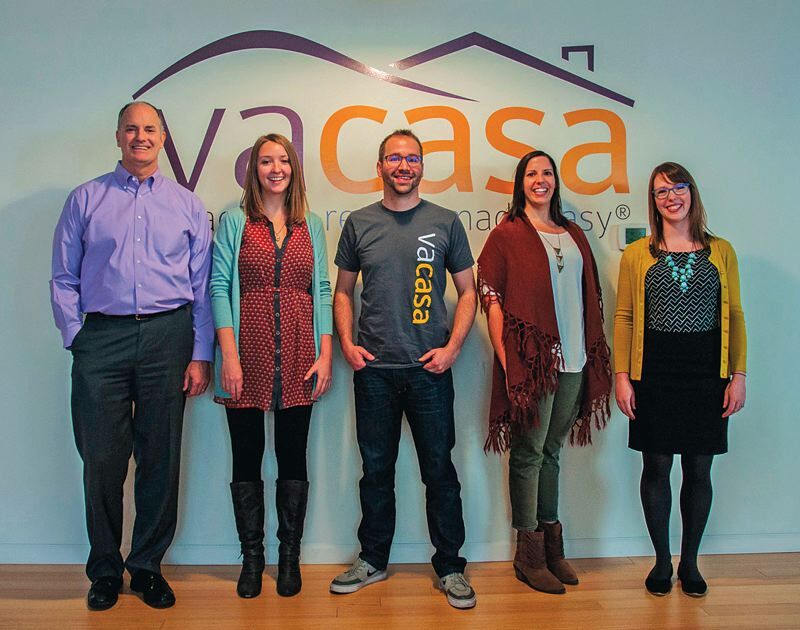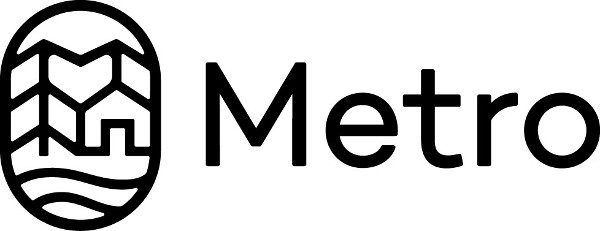Su Casa
Published 12:00 am Tuesday, December 9, 2014

- Vacasa Executives Brian Butler, Tiffany Hadaller, Scott Breon, Kimberly White, Lisa Hovey in their headquarters on Martin Luther King Jr Blvd.
Vacation rental company Vacasa is hiring 6,000 new employees in 2015.
Trending
This is a data-driven company with some Phd. mathematicians on staff, so that number (attractively round, impressively large) has the seal of approval of its team of data analysts.
Chief Strategy Officer Scott Breon, whose brother Eric founded Vacasa in 2009, stresses that 500 of those jobs will be in Portland.
It will hire technology, analytics, and marketing positions, including a Chief Technology Officer, Director of Engineering, developers, Analytics Director, analysts, Marketing Director, PR Director, operations coordinators, and sales coordinators — all living wage jobs, from the looks of them.
Trending
Vacasa is in the business of persuading more people to rent out their second homes, and finding more tourists to rent them. It takes the property management burden away from owners, hires caretakers and tries to raise the standard of customer service from homey to classy. Currently, it has 1,300 properties on its books, mostly in the west and southwest, but it is just expanding into Central America. Belize and Mexico are coming online this week.
Like Airbnb, the homes are professionally photographed for the web. Vacasa catalogs every amenity and markets them to customers old and new. Both sites were born out of the Great Recession, when people were desperate for cash, either to just pay their rent or hold on to their second home.
“But we’re like Amazon, they’re like ebay,” says Scott Breon. “We own the vertical.” Breon suggests that Airbnb renters and owners have the hassle of dealing directly with each other, whereas Vacasa people have professional intermediaries — managers, maintenance people, cleaners — to do all the worrying. .
“In traditional hotel management you had one or two employees manage pricing, and the prices depended on, does the room face the ocean, or does the room not face the ocean? We have 1,300 properties, each with its own amenities and history and data, and we can’t hire a person for each one to set the price.” Instead, Vacasa staff pride themselves on the rate optimization software which was built in-house.
Breon compares pricing a vacation home to selling a peach at a farmer’s market, its price varying with how ripe it is. He also compares it to bringing a train into a station at exactly the right place to pick up the most passengers.
The website uses everything an API can slurp up: weather feeds, the calendar and customer data, to change prices accordingly. They’ll hold off the customer who will only spend $100 a night for the one it knows will spend $200 a night.
He is proud that the 260 properties for which there was a two-year data set showed that the pricing system brought an average 21 per cent increase in revenue for the homeowners.
“Any company would want that.”
Vacasa’s headquarters, a salmon colored building above a boot camp gym at N. Shaver St. and Martin Luther King Jr. Boulevard, is its fifth home in two years because it grows so quickly. According to Lisa Hovey, Director of Internal Communications and Planning, Vacasa hired 425 people between December 2013 and December 2104. She has been with the firm three months.
Looking around the room full of programmers, Breon has a hard time finding anyone who has been there more than three months. Many coders, sales and marketing work remotely (that is, from home). His top copywriter works “from a cabin in the woods four days a week, and she just spent six weeks traveling in China,” he says.
The bulk of the hires will be scattered around the world, managing and cleaning homes, and some doing sales and marketing. They are paid hourly but they are staff, according to Breon, who stresses the local community should be enriched not impoverished by the vacation rental business.
They are the locals in communities such as Lake Tahoe, California/Nevada; Vail, Colorado; and Rockaway Beach on the Oregon Coast.
The current vogue is to call yourself a technology company that just happens to deal in an old industry, like taxi service, renting beach cabins and matchmaking singles. Uber, Vacasa and OKCupid all talk proudly of their algorithms making markets more efficient. Breon’s (and his brother’s) background is in analyzing data, and he needs to hire more people like himself as the data explode.
But this company also depends on finding non-technical people in small towns to make beds, plug in modems and unplug toilets, on a 24/7 basis. Vacasa rents storage units to hold supplies like paper towels and cleaning products. Staff routes and drive times are optimized out of the Portland office. Cleaners who consistently score higher than others are offered more work first.
Kimberly White, VP of Operations, is in charge of “Maintenance, guest services, owner services…Everything that happens when you need to go in and out of a home.” She uses ads on Craigslist and has staff “put up flyers at the hardware store. They attend PTA meetings and find teachers who want to work their summers cleaning rooms for extra cash.”
They are given smartphones with an app lets them take photos of damage and report it, and log their hours and detailed checklists of work.
While many things have been automated — the app for tracking work hours — certain things remain labor intensive.
Lisa Hovey, has an engineering background and worked at Nike for over four years.
Hovey says the company is “Very email heavy, but we’re working on a central internal communications system,” where office staff log in and a dashboard shows them their relevant announcements and new tasks.
Right now she sends weekly updates in the field, where managers often print them out for less tech savvy people. “We can break the data down by ways that interest them, like how many beds were made this week. It gives them a sense of ownership.”
“We’re doing best practice improvements but we don’t want it to ever feel corporate, or bogged down in bureaucracy,” she says.
“We want to keep agile and be a team, and support each other to make decisions about things they are an expert in.”
Rapid growth has a look and a sound. Freshly unpacked computer and monitor boxes still sit next to desks. IKEA bookshelves act as dividers and staff use noise-cancelling headphones when the energy level peaks or the gym bass gets too loud below.
At the all-hands Wednesday meeting last week, there was a new-school-year feel. There were announcements about the smoothest Thanksgiving weekend ever, new hires and new babies. Of the 75 who work in the Portland office, at least a third are female. The word went out from Accounts that printing checks in-house was working well, but did anyone know an accountant looking for work?
Lisa Hovey’s background is in engineering. Her sister Marsha Hovey is a graphic designer working on the brand image. (In addition to the Breon siblings, there are four sets of sisters at Vacasa.)
“You have to learn who your audience is,” says Marsha Hovey. Her pinboard is festooned with travel magazine imagery. She came out of marketing ski resorts to young guys. “This is a bit more middle-aged, people 30 to 60.”
Next to her was new intern Taylor Gemmet, 23, a recent University of Oregon BFA graduate. “I saw an ad on Indeed.com, I think,” she said. Gemmet didn’t have much vacation experience — Florida, Idaho, Washington — let alone vacation rental management experience. But she studied the firm and passed the test to design a business card. Now she really is redesigning the Vacasa business card. Things move quickly.
“We’ve got five recruiters in our Idaho office,” says Breon. “But I need more. I need to hire people to hire people.”







